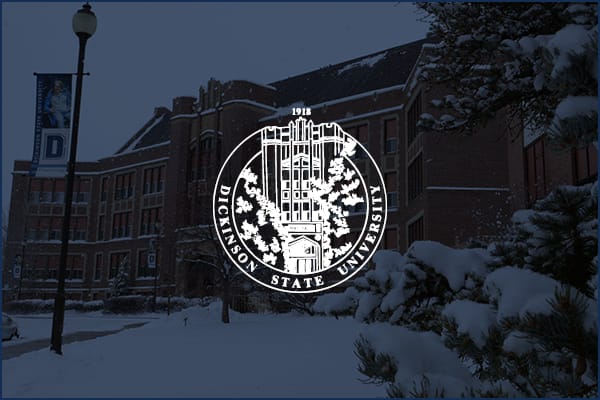Despite the turbulent years of the COVID-19 pandemic, Dickinson State University (DSU) has realized enrollment success, largely in thanks to the University’s mission to keep its tuition affordable for all students – focusing on high-performing high school, transfer, and non-traditional students.
“We felt creating a scholarship package that rewards solid students who are prepared for college was critical for our institution,” stated DSU President Steve Easton. “The Presidential Scholarship has met its goal of helping us convince strong students to attend DSU.”
In the summer of 2020, DSU adopted the Presidential Scholarship with optional criteria allowing prospective students to utilize grade-point average (GPA) or a placement test score to qualify. High school students who have a high school grade-point average of 3.25 or higher and transfer students who have a college GPA of at least a 3.0 qualify for the scholarship. Students may also qualify if they have an ACT of 22 or SAT 1100 or higher.
Though the Presidential Scholarship has strong appeal for western North Dakotans, all students who apply to Dickinson State that meet the criteria are eligible for the Presidential Scholarship, regardless of their state or country of origin. The Presidential Scholarship pays $1,600 of a student’s tuition each year they are at DSU, as long as they maintain a grade-point average of 3.0.
“We want to welcome all current North Dakota residents as well as ‘New North Dakotans’ to Dickinson State University,” stated Easton. “We base the Presidential Scholarship on the reported GPA or test-scores. Students do not need to submit an additional application to receive the award. Current Presidential Scholarship awardees have expressed they are thankful to know immediately of their award.”
In addition to the Presidential Scholarship, DSU offers institutional support, including room waivers, to attract students to enroll in critical need areas. Dickinson State has scholarship opportunities for underrepresented students in higher education as part of its cultural diversity initiatives. The institution has expanded aid for dual credit and early entry high school students wanting to start college early. Other opportunities include funding support for students interested in fine and performing arts, agriculture, athletics, and esports. DSU is proud to have launched scholarships aimed at addressing the current teacher education shortage.
In addition, students who demonstrate leadership characteristics are encouraged to apply to be a part of the Theodore Roosevelt Honors Leadership program or become a student ambassador. All scholarships and aid at the institution are stackable, meaning a student may qualify for assistance in more than one category.
The COVID-19 pandemic was a tumultuous time for higher education. Institutions across the country realized significant enrollment losses. Experts say these enrollment losses were in large part due to financial uncertainty, as well as changes in class delivery, student life, and other services students expect in a traditional college experience.
Many high school graduates took gap years to avoid constraints of masking, social distancing, and limited social engagements. These factors resulted in an approximate enrollment loss in undergraduate higher education of nine percent nationally, according to the National Student Clearing House Research Center. During the same time period, Dickinson State experienced a nine percent headcount enrollment growth.
“We are proud of our learners at DSU,” said DSU’s interim provost John Miller. “They have persisted through some difficult times. DSU is committed to offering a quality, affordable academic experience for our students.”
For information on student scholarships, please visit dickinsonstate.edu/scholarships.

